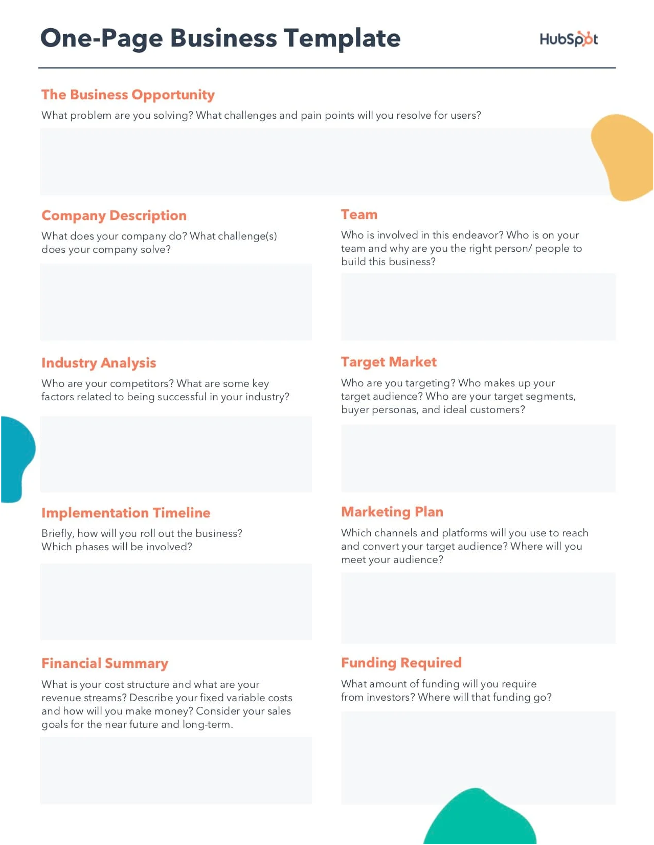An essential part of starting your business is developing your business plan. This will include the operational, financial and marketing aspects of your business. This is important if you are looking for a loan, applying for a business grant or pitching to investors. Lenders and investors want to see the true potential of your business idea. The plan can also help you identify your goals and develop strategies for achieving them.
Most business plans include the following sections:
- Executive Summary: This section will include an overview of the company, your unique value proposition, and a team overview.
- Market Opportunity: This is where you’ll detail the opportunity in the market. Where is the gap in the current industry and how will your product fill that gap?
- Key Features & Benefits: At some point in your business plan, you’ll review the key features and benefits of your products and/or services.
- Pricing & Revenue: This is where you’ll discuss your cost structure and various revenue streams.
Target audience: This section will describe who your customer segments are in detail. What is the demographic and psychographic information of your audience? - Marketing Strategy: Here, you’ll discuss how you’ll acquire new customers with your marketing strategy.
Competitive Landscape: This is where you’ll detail who the top competitors are. - Financials: This is where you’ll detail the funding that’s required and discuss investment opportunities.
Click HERE for more information regarding business planning, or check out a video explainer:
